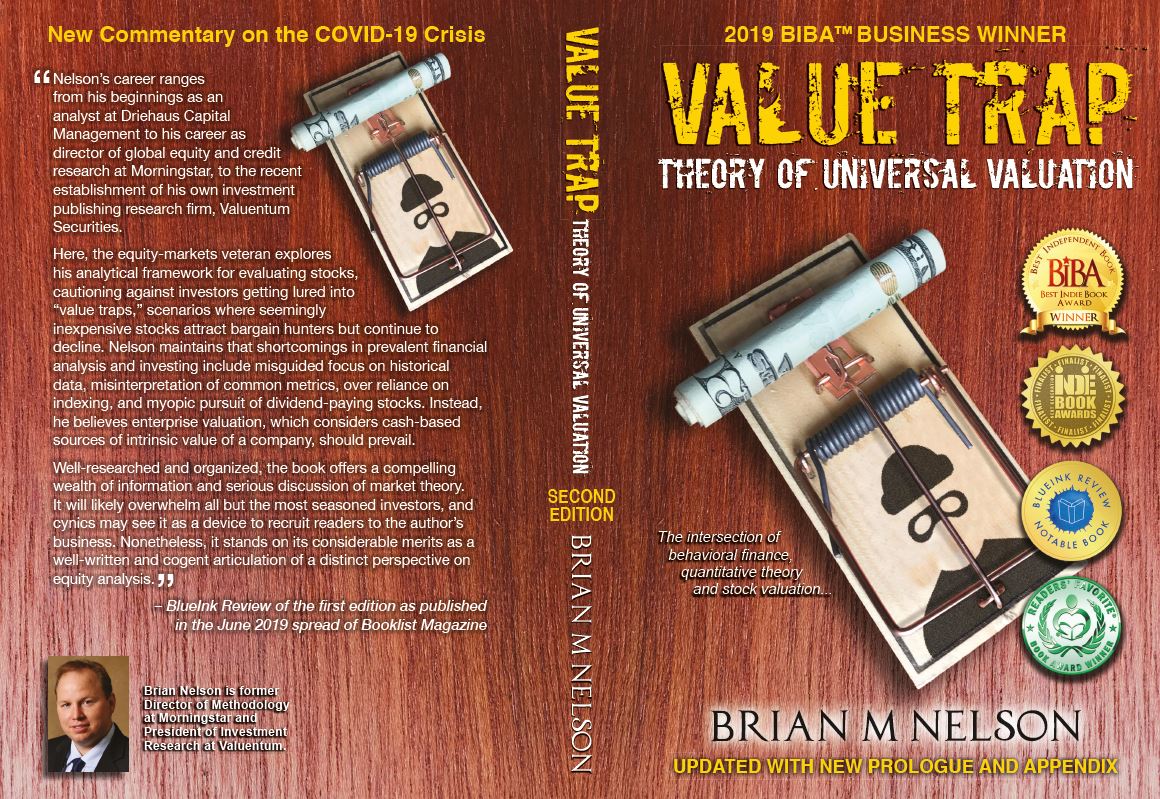Member LoginDividend CushionValue Trap |
Be Careful With Celebrity Endorsement of Investment Products
publication date: Dec 22, 2022
|
author/source: Brian Nelson, CFA
 Dear members: Dear members:Have you ever wondered why so many trust the TV for financial advice or stock tips?
---
You guessed it: It comes back to "brain science" or the concept of familiarity. When we see a celebrity or our favorite stock guru on the television, it arouses our emotions and connects us with the idea, making the experience more memorable. The brain tends to treat our favorite newscaster or celebrity as a trusted, familiar friend, and therefore we translate those feelings into expertise and a "valid" endorsement.
---
As humans, we can sometimes be misled. Recently, Kim Kardashian had to pay $1.26 million to settle an SEC charge that she promoted a cryptocurrency while failing to disclose she had been paid $250,000 to do so. Other influencers were recently charged with a $100 million pump and dump scheme. Investors have to be careful out there about what information they are getting, and why they are getting it.
---
Skin in the Game Could Be a Terrible Thing When It Comes to Stock Analysis
---
At Valuentum, we believe the independent voice is the best one, and that's why Valuentum and I don't take positions in any individual stocks. We want to limit conflicts of interest as much as possible with our research and analysis. 'Skin in the game' makes sense for a lot of things, but having an ownership position in a stock could result in biased stock research and analysis, while adding no information value. Crypto gurus such as Sam Bankman-Fried had tons of 'skin in the game,' but with the collapse of FTX, he has now been arrested on federal charges.
---
It's clear 'skin in the game' is not always a good thing and could lead to poor outcomes, sometimes dire ones. We believe in independence and integrity when it comes to stock research and analysis. Quite simply, owning a stock doesn't make one smarter about that stock, nor does it give the investor an edge. In some cases, owning a stock could result in too optimistic of research and analysis and lead to blind spots about key risks to the story. These research and analysis blind spots could then lead to some serious losses. 'Skin in the game' in this case could be a terrible thing.
---
Origins of Celebrity Branding
---
Probably one of the first types of celebrity branding came from trading cards in the late 1800s. The cards were given away in packs of cigarettes to heighten demand as consumers bought more to finish the entire sets of baseball cards. Things really took off in the 1930s, and Babe Ruth was probably one the most popular celebrity endorsers of that bygone era. From White Owl cigars to Old Gold cigarettes to Pinch-Hit tobacco to Raleigh cigarettes to Red Rock Cola and beyond, Babe Ruth was everywhere.
---
In 1930, when asked by a reporter whether he thought it was right to be making more money than President Hoover, Babe Ruth responded, "Why not? I had a better year than he did." The people loved him, and at the time of the Great Depression, that touch of cockiness and humor was what people wanted. Corporations know the power of the celebrity advertiser, but we should be careful not to read too much into the stock tips given on TV. Think of business television as entertainment, nothing more nothing less.
---
How We Overcame the Hazards of Celebrity Influence
---
Back in 2015, Valuentum had its first run in with the potential hazards of celebrity influence when we published our work on the pipeline MLPs. Our thesis was picked up in Barron's.com and commented on in other media outlets from Benzinga to Seeking Alpha to S&P Global and across the sell-side community. We noticed a glaringly obvious mispricing across the MLP space at the time, and we pounded the table on our views.
---
The long and short of the story is that most pipeline MLP investors weren't paying attention to the concept of intrinsic value, as calculated by the enterprise valuation process (i.e. the discounted cash flow process). Most were focusing on distribution yield-based valuations and distributable cash flow, a misnomer not to be confused with discounted cash flow. Most analyses from our perspective were completely ignoring the growth capital outlays within the enterprise valuation context. You know the rest of the story.
--- ---
But what does this have to do with TV celebrities?
---
Well, in late 2015, our publishing firm was surprised by an article from TheStreet, co-authored by Jim Cramer. For one, the article tried to dispel our concerns about Energy Transfer's ability to keep paying its distribution due to the size of its debt load. Those that know this story know that Energy Transfer subsequently merged and pursued a stealth distribution cut in November 2016. Since that article from TheStreet, on a price-only basis, Energy Transfer's shares have fallen over 10%, while the S&P 500 is up nearly 90%.
---
Concluding Thoughts
---
The important takeaway is to be careful out there--especially when it comes to listening to your favorite gurus on TV or on social media (especially on social media!). As humans, we tend to conflate popularity ("celebrity status") with expertise due to a familiar connection (i.e. that familiar face on TV), and this could be extremely hazardous to your retirement portfolio's returns.
---
Einstein is credited with the saying "blind belief in authority is the greatest enemy of truth." Just like the important concept of enterprise valuation may have saved investors from the MLP collapse years ago, helped investors through the COVID-19 crisis and steered them clear of the worst of the quantitative "value" factor's performance in early 2020, understanding the in's and out's of the process will hands-down make you a better investor.
---
Kind regards,
---
Brian Nelson, CFA
President, Investment Research
Valuentum Securities, Inc.
brian@valuentum.com
---
It's Here!
The Second Edition of Value Trap! Order today!
 -----
---
Tickerized for holdings in the AMZA. A version of this article was published September 2020.
---
--------------------------------------------- About Our Name But how, you will ask, does one decide what [stocks are] "attractive"? Most analysts feel they must choose between two approaches customarily thought to be in opposition: "value" and "growth,"...We view that as fuzzy thinking...Growth is always a component of value [and] the very term "value investing" is redundant. -- Warren Buffett, Berkshire Hathaway annual report, 1992 At Valuentum, we take Buffett's thoughts one step further. We think the best opportunities arise from an understanding of a variety of investing disciplines in order to identify the most attractive stocks at any given time. Valuentum therefore analyzes each stock across a wide spectrum of philosophies, from deep value through momentum investing. And a combination of the two approaches found on each side of the spectrum (value/momentum) in a name couldn't be more representative of what our analysts do here; hence, we're called Valuentum. --------------------------------------------- Brian Nelson owns shares in SPY, SCHG, QQQ, DIA, VOT, BITO, RSP and IWM. Valuentum owns SPY, SCHG, QQQ, VOO, and DIA. Brian Nelson's household owns shares in HON, DIS, HAS, NKE, RSP. Some of the other securities written about in this article may be included in Valuentum's simulated newsletter portfolios. Contact Valuentum for more information about its editorial policies. Valuentum members have access to our 16-page stock reports, Valuentum Buying Index ratings, Dividend Cushion ratios, fair value estimates and ranges, dividend reports and more. Not a member? Subscribe today. The first 14 days are free. |


0 Comments Posted Leave a comment